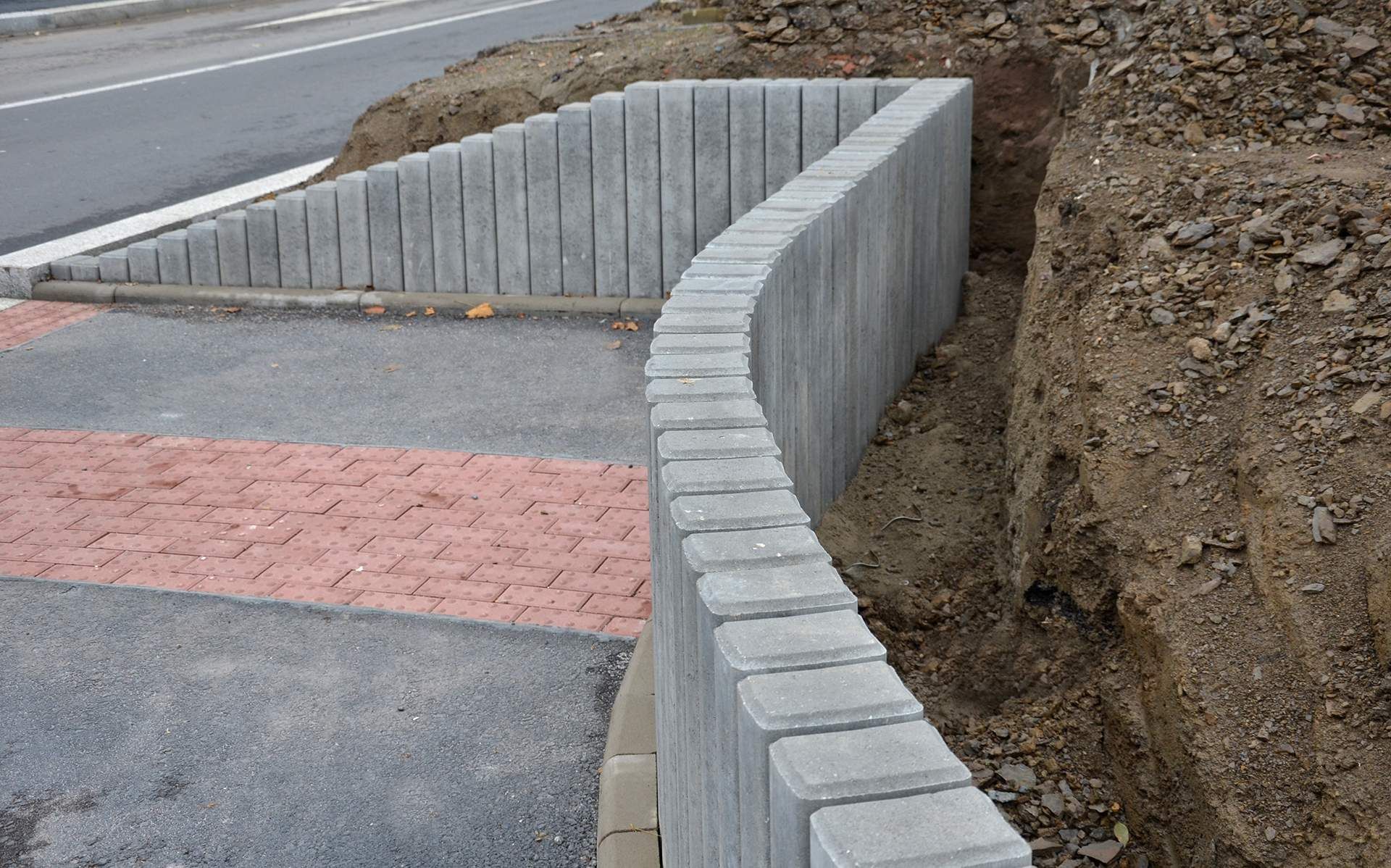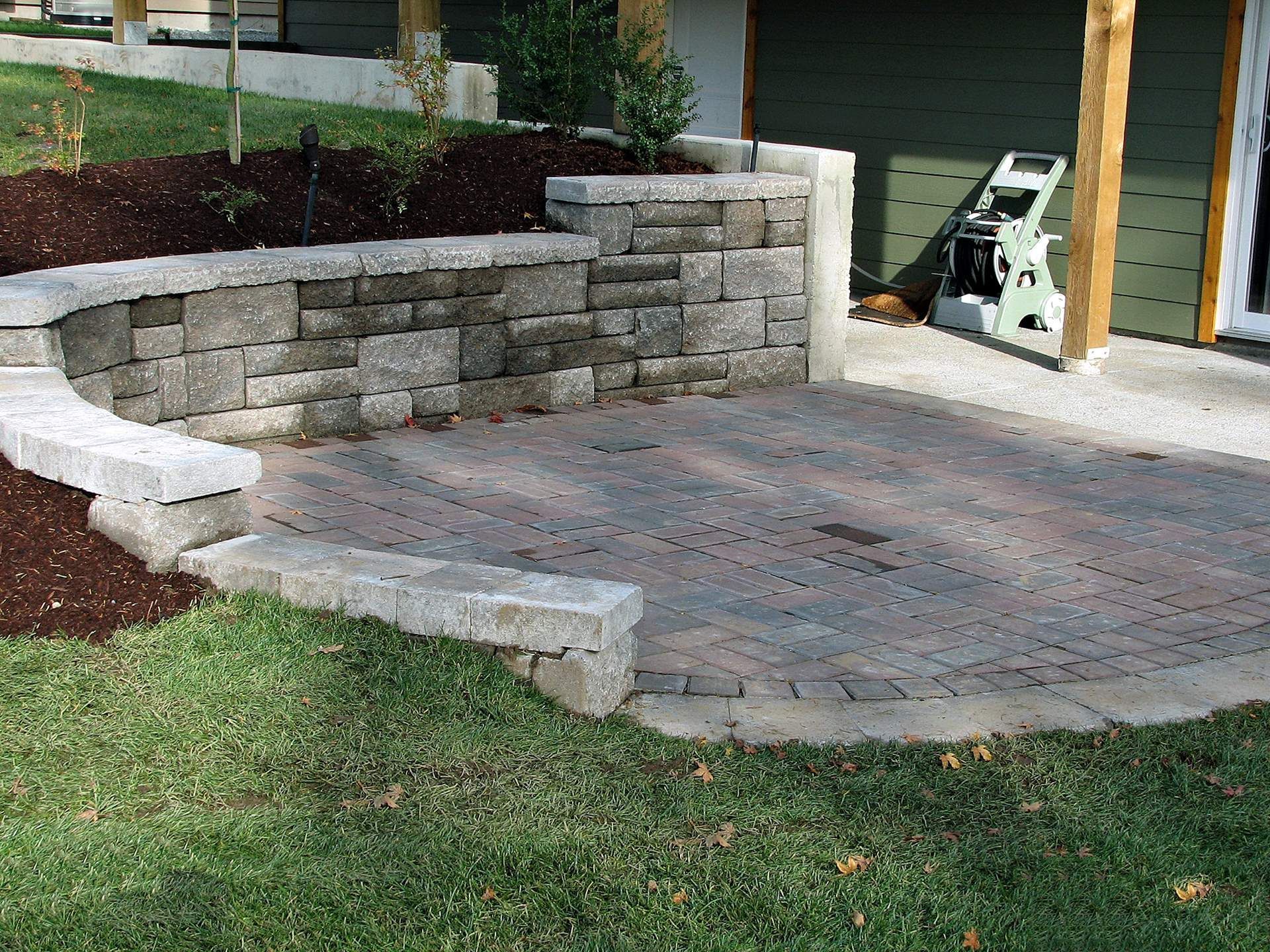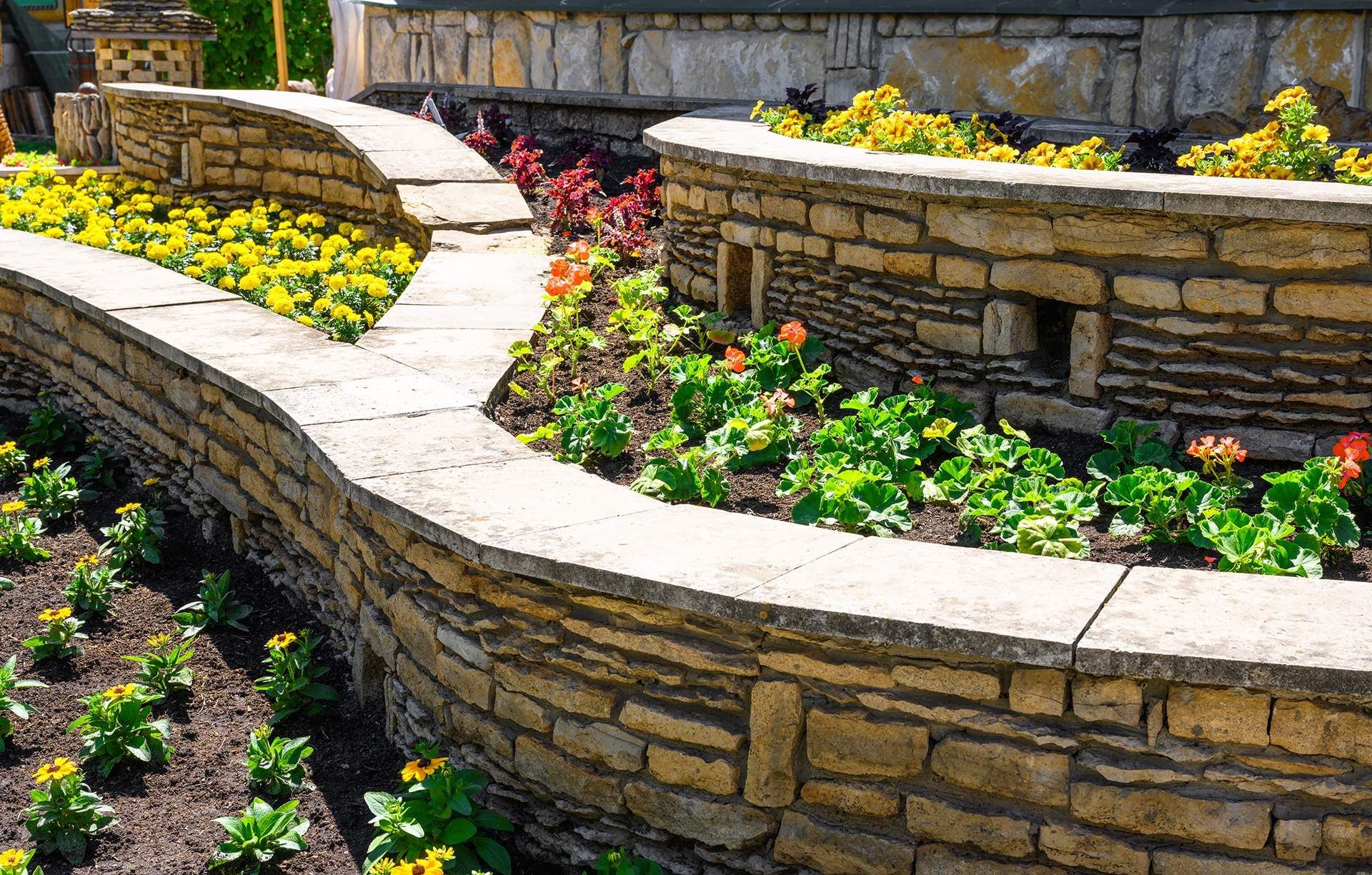Retaining Wall in Nashville TN
Local Retaining Wall Installers in Nashville, TN
At D R Excavation in Nashville, TN, we offer a variety of retaining wall installation services to the local area. We specialize in both commercial and residential projects, and our team has the experience and expertise to handle any size job.
We offer a variety of different materials to choose from, including concrete, stone, and wood, and we can help you select the best option for your particular needs. We also offer a variety of different styles to choose from, so you can find the perfect look for your home or business. Whether you need a retaining wall for functional purposes or for aesthetic reasons, we can help you get the job done right.
Contact us today to learn more about our services or to schedule a free consultation.
D R Excavation Nashville
611 Commerce Street, Nashville, TN 37203
(615) 632-6082
Retaining Walls in Nashville, TN
At D R Excavation, we're a team of excavation contractors who love the outdoors and are passionate about our retaining wall work. We're based in Nashville, TN and we serve the surrounding communities in Middle Tennessee.
We specialize in both residential and commercial excavation, and we're proud to offer our clients a wide range of services that includes site preparation, demolition, grading, trenching, and more.
We're committed to providing quality workmanship at a fair price, and we're always available to answer any questions you may have about your project.
What We Offer
Our retaining wall service in Nashville TN revolves around four main points of focus: the size of the wall, the materials used, the location of the wall and the design elements of the wall. We take each of these into careful consideration when creating a retaining wall for our clients because we know that each one plays an important role in the overall stability and look of the finished product. For example, the size of the wall will dictate how much weight it can support, while the location will determine how susceptible it is to erosion or other environmental factors.
-
Size
The size of the wall is an important focus of our retaining wall installation process because the height of the wall affects its stability.
A taller wall is more likely to be unstable and may lean or collapse if not properly supported. In addition, the size of the wall determines the amount of soil it can retain.
A taller wall can hold more soil, which is important for preventing soil erosion. Finally, the size of the wall affects its appearance. A taller wall will be more visible, and may be more aesthetically pleasing than a shorter wall.
-
Materials
The materials the wall is built from are important for a number of reasons.
First, they need to be strong enough to support the weight of the soil behind it.
Second, they need to be durable enough to withstand the elements. Third, they need to be properly installed in order to function correctly.
We take all of these factors into account when we install retaining walls. We use high-quality materials that are designed to last, and we make sure that they are installed correctly in order to provide the best possible protection against soil erosion.
-
Location
When installing a retaining wall, the location of the wall is a very important focus. The wall needs to be located in such a way that it can effectively hold back the soil or other material that it is meant to retain.
In some cases, the wall may also need to be located in a way that minimizes the amount of excavation required.
As a result, our team takes great care to ensure that the wall is installed in the most effective and efficient location possible.
By doing so, we can help to ensure that your retaining wall serves its purpose for many years to come.
-
Design Elements
The design elements of the wall are an important focus of our retaining wall installation process because they contribute to the stability of the wall and the overall aesthetic of your property.
By paying close attention to the design elements of the wall, we are able to build a strong and attractive retaining wall that will enhance your property for years to come.
Our Process
Retaining walls in Nashville TN can be built using a variety of different materials, including concrete, stone, and wood. We have experience working with all of these materials, and we can help you choose the best option for your needs. Each material has its own benefits and drawbacks, so it's important to choose the right option for your project.
-
Gravity Walls
Gravity retaining walls are the most common type of retaining wall, and they get their name from the fact that they rely on their own weight to stay in place.
When properly designed and built, gravity retaining walls can be extremely stable.
However, if the soil behind the wall is not firm enough, or if there is too much water pressure, the wall can collapse.
-
Cantilevered Walls
Cantilevered retaining walls are a type of structurally sound wall that is commonly used to stabilize sloped land and prevent soil erosion.
These walls are built using reinforced concrete or masonry, and they are designed to "cantilever" outward from the property, offering support without requiring a deep foundation.
In addition to being highly durable, cantilevered retaining walls are also very attractive, and they can be customized to complement the look of any home or business.
-
Piling Walls
Piling retaining walls are built by driving piles, or long posts, into the ground.
The piles are then connected by a horizontal beam or "lagging." Piling retaining walls are more expensive than other types of retaining walls, but they offer a number of advantages.
They can be built in any soil condition, including areas with high water tables. Piling retaining walls are also very durable, and can last for many years with proper maintenance.
-
Anchored Walls
Anchored retaining walls are built with either concrete or stone, and they are reinforced with steel cables or rods that are anchored into the ground.
This type of wall is very strong, and it can support a lot of weight. Anchored retaining walls are often used in commercial applications, but they can also be a great addition to your home landscape.
If you have a sloped yard, an anchored retaining wall can create level areas for planting, seating, or other outdoor activities. And if you live in an area that is prone to flooding or erosion, an anchored retaining wall can help to protect your home from damage.
-
Decorative Walls
Decorative retaining walls can be constructed from a variety of materials, including stone, brick, concrete, and even wood. They can be built to any height and length, making them highly customizable to fit any space.
In addition, decorative retaining walls can be incorporated into any style of landscape design, from formal gardens to more naturalistic settings.
Whether you're looking to add a touch of class to your yard or simply want to create more usable space, a decorative retaining wall may be the perfect solution.
-
Sitting Walls
Sitting walls are lower than traditional walls and are designed to provide seating or to act as a decorative element in a landscape.
While they can be made from any type of stone, sitting walls are typically constructed from smaller rocks or paving stones. This type of wall is also usually shorter than a traditional stone wall, with a height of three feet or less.
In addition, sitting walls frequently have curves or other carved details to give them added visual interest.
-
Privacy Walls
Privacy walls are typically built to be taller than standard retaining walls, and they are often constructed with materials that provide more sound insulation.
This can be especially important if you live in a crowded neighborhood or if you have a pool or other outdoor living space that you want to keep private.
In addition to increased height, privacy walls may also include features such as lattices or trellises that provide additional privacy by blocking direct line of sight.
Building Materials
In Nashville, TN, we build retaining walls from a variety of different materials. The most common materials are concrete, stone, and brick. Each material has its own benefits and drawbacks, so it's important to choose the right material for your project. Concrete is the most affordable option, but it doesn't have the same aesthetic appeal as stone or brick. Stone is more expensive, but it's more durable and has a more natural look. Brick is the most expensive option, but it's also the most attractive.
-
Stone
When it comes to choosing a material for their retaining walls, some customers go with stone. There are a few reasons for this. First of all, stone is a very durable material. It's not going to rot like wood, and it's not going to corrode like metal.
That means that, over time, stone retaining walls are going to last longer than walls made from other materials. Additionally, stone is a very strong material. That means that it can support a lot of weight without collapsing.
That's important for any retaining wall, but it's especially important for taller walls or walls that are holding back particularly heavy loads. Finally, some people simply prefer the look of stone. It's a natural material that can add a lot of visual interest to a property.
-
Poured Concrete
There are many reasons why customers might choose to use poured concrete for their retaining walls. For one, concrete is a very sturdy material that can withstand a lot of weight and pressure.
This makes it ideal for retaining walls, which need to be able to support the weight of the earth behind them. Additionally, concrete is a very versatile material that can be easily shaped and molded into any desired shape.
This allows for a lot of creativity in terms of design, which means that poured concrete retaining walls can be truly unique. Finally, concrete is relatively affordable, especially when compared to other materials like stone or brick.
-
Concrete Block
Concrete blocks are a popular choice for retaining walls for a number of reasons.
First, they are very strong and durable, able to withstand a lot of weight and pressure.
Second, they are relatively inexpensive compared to other options, such as poured concrete.
Third, they are easy to work with, meaning that the wall can be built quickly and without too much hassle. Finally, concrete blocks can be easily colored or textured to match the surrounding landscape.
-
Wood & Timber
There are a few reasons customers choose wood or timber as their preferred material for retaining walls.
Firstly, wood is a natural material that can blend in with its surroundings. It also has a warm, earthy look that many people find appealing.
Secondly, wood is relatively easy to work with, making it a good choice for do-it-yourselfers.
And finally, wood is usually more affordable than other materials like stone or concrete.
-
Boulder
There are many reasons why a customer might choose to use boulders as their material of choice for the retaining walls we build them.
For one, boulders are a very durable material that will last for many years with proper care.
They are also a very natural-looking material, which can help to blend a retaining wall into its surroundings.
In addition, boulders are usually quite easy to obtain and relatively inexpensive, making them a cost-effective option for many customers.
Finally, boulders come in a variety of shapes and sizes, which gives customers a lot of flexibility in terms of design.
Who We Are
When you choose D R Excavation in Nashville, TN, you're choosing a excavation company that cares about its customers.
We have been in business for many years and have built a reputation for excellence. We are a family-owned and operated business, and we take pride in our work.
We are fully licensed and insured, and we use the latest equipment and techniques.
We offer a wide range of services, including excavating, grading, site preparation, demolition, and more.
Licensed & Insured
The retaining wall installation contractors we work with at D R Excavation are all licensed and insured.
This is a benefit to the customer because it protects them in case of any damages that may occur during the installation process.
In addition, it ensures that the contractor is qualified to do the job and that they will be held accountable for any mistakes that they make.
By working with only licensed and insured contractors, we can provide our customers with the peace of mind that their property is in good hands.
FAQ's About Retaining Walls
-
How much does retaining wall installation cost?
The cost of retaining wall installation can vary depending on a number of different factors. The most important factor is the size and scale of the project.
A small wall built in a residential backyard will obviously cost less than a large commercial wall. Other important factors include the type of material used, the sloping of the land, and the soil conditions.
In general, walls made from natural stone or interlocking blocks will be more expensive than walls made from poured concrete. If the land is very steep or has poor soil conditions, that will also drive up the cost.
-
What are the different types of retaining walls?
Retaining walls are structural elements that are used to hold back soil or rock from a slope. They are commonly used in landscaping and gardening to create level terraces or raised beds.
There are several different types of retaining walls, each with its own advantages and disadvantages. Gravity walls rely on their weight to resist the pressure of the soil behind them.
The most common type of gravity wall is made from concrete blocks that are stacked on top of each other. Another type of gravity wall is made from interlocking timbers that are tightly secured together.
Cantilever walls are another type of retaining wall that uses vertical posts to support a horizontal beam. The beam transfers the weight of the soil to the posts, which act as anchors in the ground. Sheet pile walls are often used in areas where there is limited space.
These walls consist of interlocking steel or plastic sheets that are driven into the ground. Anchored walls are similar to sheet pile walls, but they also have cables or rods that are buried in the ground to provide additional support.
-
What are the benefits of a retaining wall?
A retaining wall is a structure that helps to support soil that would otherwise collapse.
Retaining walls are often used in landscaping, as they can help to create level areas on sloped land.
In addition, retaining walls can be used to separate different areas of a yard, or to provide privacy. They can also be used to create decorative features, such as waterfalls or planters.
-
What are some common problems with retaining walls?
Retaining walls are a common feature in many landscape designs. They can be used to create level areas for planting, to define garden beds, or to provide extra support for slopes.
However, retaining walls can also cause a number of problems if they are not designed and built properly.
One common issue is that the wall may begin to lean over time due to the weight of the soil behind it. This can cause cracks to form in the wall, which can allow water to seep through and erode the soil.
Another problem is that the wall may not be able to handle the amount of water that flows through it during a heavy rainstorm, resulting in flooding.
-
How can I maintain my retaining wall?
To ensure that your retaining wall remains in good condition, it is important to regularly inspect it for cracks, loose stones, or other signs of damage.
In addition, you should clear away any debris that has accumulated around the base of the wall.
If you notice any major damage, it is important to have the problem repaired as soon as possible to prevent further deterioration.
By taking these simple steps, you can help to ensure that your retaining wall remains functional for many years to come.
"We highly recommend their services to anyone looking for top-notch excavation work. Thank you, D R Excavation!"
- Susan Sherman
“Grateful to D R Excavation for the great job they did on our project. They were professional, and did a great job cleaning up afterwards. We couldn't have asked for more!"
- Ed Schultz
“They did an amazing job and we couldn't have done it without them."
- Gary @ Custom Dream Homes
Why Should You Work With Us?
20+
Years of Experience
300+
Successful Excavation Projects
35+
Trained Professionals - and Growing!
Contact Us Today For A Free Quote
Our company has years of experience in excavating all sorts of land, from small residential properties to large commercial ones. We have the equipment and manpower to get the job done quickly and efficiently. Contact us today to get started on your project!



